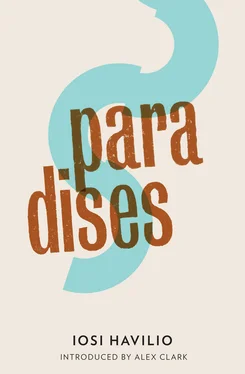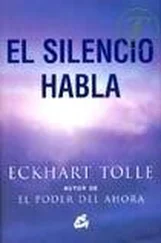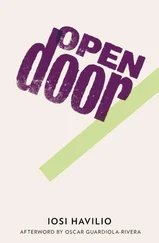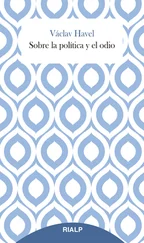Iosi Havilio - Paradises
Здесь есть возможность читать онлайн «Iosi Havilio - Paradises» весь текст электронной книги совершенно бесплатно (целиком полную версию без сокращений). В некоторых случаях можно слушать аудио, скачать через торрент в формате fb2 и присутствует краткое содержание. Год выпуска: 2013, Издательство: And Other Stories, Жанр: Современная проза, на английском языке. Описание произведения, (предисловие) а так же отзывы посетителей доступны на портале библиотеки ЛибКат.
- Название:Paradises
- Автор:
- Издательство:And Other Stories
- Жанр:
- Год:2013
- ISBN:нет данных
- Рейтинг книги:3 / 5. Голосов: 1
-
Избранное:Добавить в избранное
- Отзывы:
-
Ваша оценка:
- 60
- 1
- 2
- 3
- 4
- 5
Paradises: краткое содержание, описание и аннотация
Предлагаем к чтению аннотацию, описание, краткое содержание или предисловие (зависит от того, что написал сам автор книги «Paradises»). Если вы не нашли необходимую информацию о книге — напишите в комментариях, мы постараемся отыскать её.
is an almost perfect novel." — Albert Camus's
reimagined with a female lead in in twenty-first-century Buenos Aires.
Recently widowed, a young woman leaves the countryside for Buenos Aires with her four-year-old son where she seeks to build a new life for herself. She finds work in the zoo and moves into the human zoo of a squatted tower block at the invitation of one of its residents, to whom she acts as nurse, giving morphine injections.
Paradises — читать онлайн бесплатно полную книгу (весь текст) целиком
Ниже представлен текст книги, разбитый по страницам. Система сохранения места последней прочитанной страницы, позволяет с удобством читать онлайн бесплатно книгу «Paradises», без необходимости каждый раз заново искать на чём Вы остановились. Поставьте закладку, и сможете в любой момент перейти на страницу, на которой закончили чтение.
Интервал:
Закладка:
We take a bus that goes around the plaza. In order to see the whole basilica, Iris has to bend down and twist her neck. Big, she says. Eloísa, who’s in the seat in front, turns round at one stage, pointing out a place I can’t see properly, a chemist, a launderette, and says to me: Remember? We get out at the entrance to the loony bin. Eloísa offers a bit of explanation to Iris, who becomes laconic again. You have no idea what it’s like, she says. Unbelievable. Without discussion, naturally, we take the dirt track bordering the hospital, as if going home. The sun is strong but not quite as hot as before, a truck passes and envelops us in a dust cloud. At the crossroads, more or less equidistant from Jaime’s farm and the site that used to be occupied by Eloísa’s parents’ shop, I trace a parabola in the air with my raised arm. I look at Iris, as if telling her about it. Pretty, she says.
Eloísa insists we go to what used to be her house first. She wants to see what was left after the bulldozers did their thing. Almost nothing, a few traces with which to mentally reconstruct the place: four posts that according to Eloísa mark the limits of the store, the tracks of the driveway and a bunch of corrugated-iron sheets in a pile, which we assume are the remains of the shed. This is mad, Eloísa cries, and just when I’m wondering if it will affect her, what kind of emotions it might rouse in her, a few steps further over, eyes on a copse of eucalyptus, kicking the ground just like Simón, a girl again, she raises her head, looking straight ahead: This was always a shithole, she says, at least it’s worse now. I smile, Iris looks at her askance, uncomprehendingly.
We retrace our steps towards the farm. I avert my eyes to delay the first impression. In the distance I can make out an army of strimmers diagonally sweeping the field, closer to us are two coils of steel cable and in between, the fig tree, parched but still standing. Two seconds later, reading my mind, Eloísa comes back with another Remember? Simón leads the way, running, he recognises his territory. About thirty metres from the gate, the same as ever but painted white, a security booth has been installed, minimal and plastic. A strangely uniformed man comes out: black shirt buttoned to the neck, like a priest, baggy gaucho trousers and military boots. Quite an ensemble. He doesn’t smile, he reveals what teeth he has left, only the couple at the front of the upper gum, rotted by nicotine. He eyes us suspiciously, more timid than mean. He must have come from the loony bin. Eloísa looks at me, trying to contain herself, she’s thinking the same as me. Some things never change. The loonies, the barriers.
There’s no need for the man to open his mouth, we can’t go through. I could tell him that I lived there until a short while ago, that I spent the last four years in that house and that this boy I’m carrying in my arms was raised there. But why? What do I want to see? What is it that I need to prove? There’s no sense to it. Iris’s eyes, which suddenly look a lot like Simón’s, end up dissuading me. Rising high, blotting out the landscape of my recent past, an immense billboard promises duplexes, chalets, plots, golf, spa and country club. The house, the stable, even the furrows left by Jaime’s pickup are still there, intact despite being closed off. I wonder how long it will take for the billboard to become reality. A year? Two? Perhaps less. I don’t think I’ll come back to see it. Eloísa suggests going to the stream, to the mulberry tree. It’s a long way, I say that we’d be better heading back. She pretends not to hear me. Downhill, between the wire fence and the shadow of the stands on the polo field, my head is inevitably filled with images from before, happy, tremendous.
All that remains of the stream is a scrawny thread of water, everything around it has been filled with light, sandy earth; the tree is there but without leaves or mulberries. Dead or dying. We set up camp on the bank, to rest. Iris sits cross-legged, Eloísa and I lie on our backs, Simón wanders about. Eyes fixed on the blue void interspersed with an infinite network of branches, I lose myself in a journey through time. I think without meaning to about all the lives that came before which were necessary for me to be born. I come up with three or four names, nothing more. I try to think ahead, this thing I am, this link, how and where it will reverberate. Simón, and then what? Think about the jewels, Eloísa says to me quietly, rather witch-like, breathing close to my ear, which brings me down like a lead balloon. The jewels, she murmurs again. I bite a smile. Iris, watching us upside down, adopts a paranoid expression, she must think we’re making fun of her.
Climbing the slope, I make out between the weeds half a dead dog covered in a cloud of flies. I act as if I’ve seen nothing, to prevent Simón or Iris or Eloísa noticing. I can guess the three different reactions and I prefer to avoid them all. Iris’s shriek, Eloísa’s excitement, Simón, naturally curious, wanting to touch it. We pass the entrance to the farm again, the man in the booth doesn’t come out this time, I say goodbye with a fleeting glance, the sun is beating down, Eloísa pushes ahead. She says: Come on. She doesn’t consult us, she just marks out our route, she bends down and slips under the wire fence. And? she hurries us on, palms up, balancing invisible balls. A cutting gesture from Iris, her shoulder raised, is enough for me to understand that she’s not planning to follow, that I should do as I please. I don’t feel like convincing her and allow myself to be guided by her prudence. Eloísa acts offended, walks under the stand and crosses the polo field diagonally, gradually growing smaller. Iris reprimands her silently, showing her gums. Simón won’t walk any further, I’m going to have to carry him for what’s left of the day. A cluster of dragonflies attacks us head-on. When we reach the crossroads, Eloísa is already a tiny speck, we still have a twenty-minute walk ahead of us and I regret not having followed her.
At a service station, recently opened on what always used to be wasteland, Eloísa is waiting for us with a can of Coca-Cola, chatting to a guy in a vest and mirrored glasses. Iris looks at her angrily, the same anger I feel towards her for being so stubborn. It’s getting on for five in the afternoon, Simón wants an ice cream, Iris to go back, Eloísa for us to accompany her to a pool bar to see if anyone she knows is there. Going for none of these options, we walk the few blocks to the shopping centre and stop at a kiosk. We sit down with a giant bag of crisps on some brick steps in front of a hairdresser’s: Styles. For Eloísa, we cease to exist for a while. She devotes herself to sending messages, one after another. She is electrified by the responses, which the mobile announces with the gasping of a hysterical girl. Finally she addresses us: There’s something on around eight, you coming? She says she’s going to meet her school friends and some other guys she hasn’t seen for ages. And she adds: What will it be like to see everyone again?
I wake at dawn with a start: the iguana is walking across my cheek.
Twenty-eight
Time with tortoises. Giant ones, from Aldabra. Relatives of those from the Galapagos. The female isn’t as restless as the male. Esteban taught me to distinguish between them, explaining something about concave and convex. A characteristic that allows copulation. I’ve spent two months coming and going without paying any attention to this naturally lit tank at the centre of all my movements, with its tree trunk, pool and mattress of rotten vegetables. Tomato, carrot, celery and a thousand mysterious little green pieces. The rain and Yessica’s absence force me to find a pastime and my feet lead me to contemplate these two fantastic beasts. I stand in the corner, my forehead supported where the walls join, occasionally glancing up to see whether anyone’s approaching and intercepting them in the aisle to check their ticket. Two minutes of observation are enough to humanise them, to project myself into the enclosure, into the slowness, to load all that weight on my shoulders. The female won’t acknowledge me at all, always motionless by the side of the pool. The male, almost twice her size, he certainly moves, initially erratically, circling her, chasing something with black skin, it could be aubergine. I try to count the rings on the carapace to work out his age, impossible, I immediately get lost. A loud voice brings me back to my post. It’s a tall, slim woman, her wrists covered by metallic bracelets, chink chink chink, and five children flitting round her like gnomes. I wait for them to disappear and return to the tortoises. The male, now, to my surprise, is up against the glass, right where I had been standing. Courteous or standing guard. When I’m face to face with him, not before or after, he stretches that aged alien neck of his and strikes the glass with his rapacious beak. He calls me, challenging, he wants something. And not just one blow, there are several, phlegmatic, but rhythmic, like a code. Here I am, he seems to be saying. A statement, a threat, a greeting. Since I can’t interpret it, he stares at me and the pecking accelerates. I could swear he’s saying something about captivity, his ancestors and all the humans he’s seen pass by. As many living as dead, for me. Can’t you see? They’re all here, engraved on my retinas. Before he starts speaking, I lean towards his fellow beings, the land tortoises. Much more numerous, mobile and superficial, incapable of making eye contact. Terrestrial.
Читать дальшеИнтервал:
Закладка:
Похожие книги на «Paradises»
Представляем Вашему вниманию похожие книги на «Paradises» списком для выбора. Мы отобрали схожую по названию и смыслу литературу в надежде предоставить читателям больше вариантов отыскать новые, интересные, ещё непрочитанные произведения.
Обсуждение, отзывы о книге «Paradises» и просто собственные мнения читателей. Оставьте ваши комментарии, напишите, что Вы думаете о произведении, его смысле или главных героях. Укажите что конкретно понравилось, а что нет, и почему Вы так считаете.











